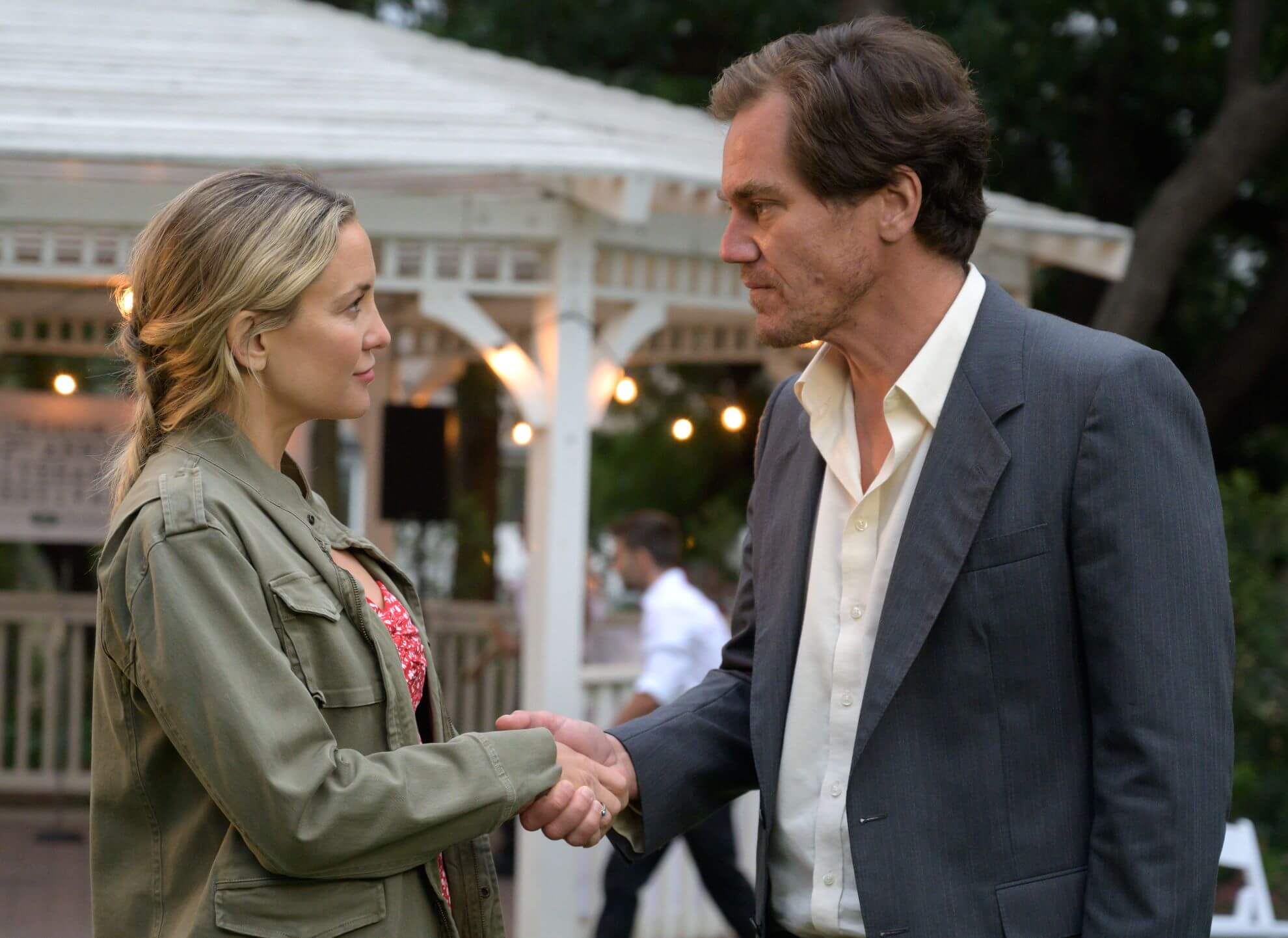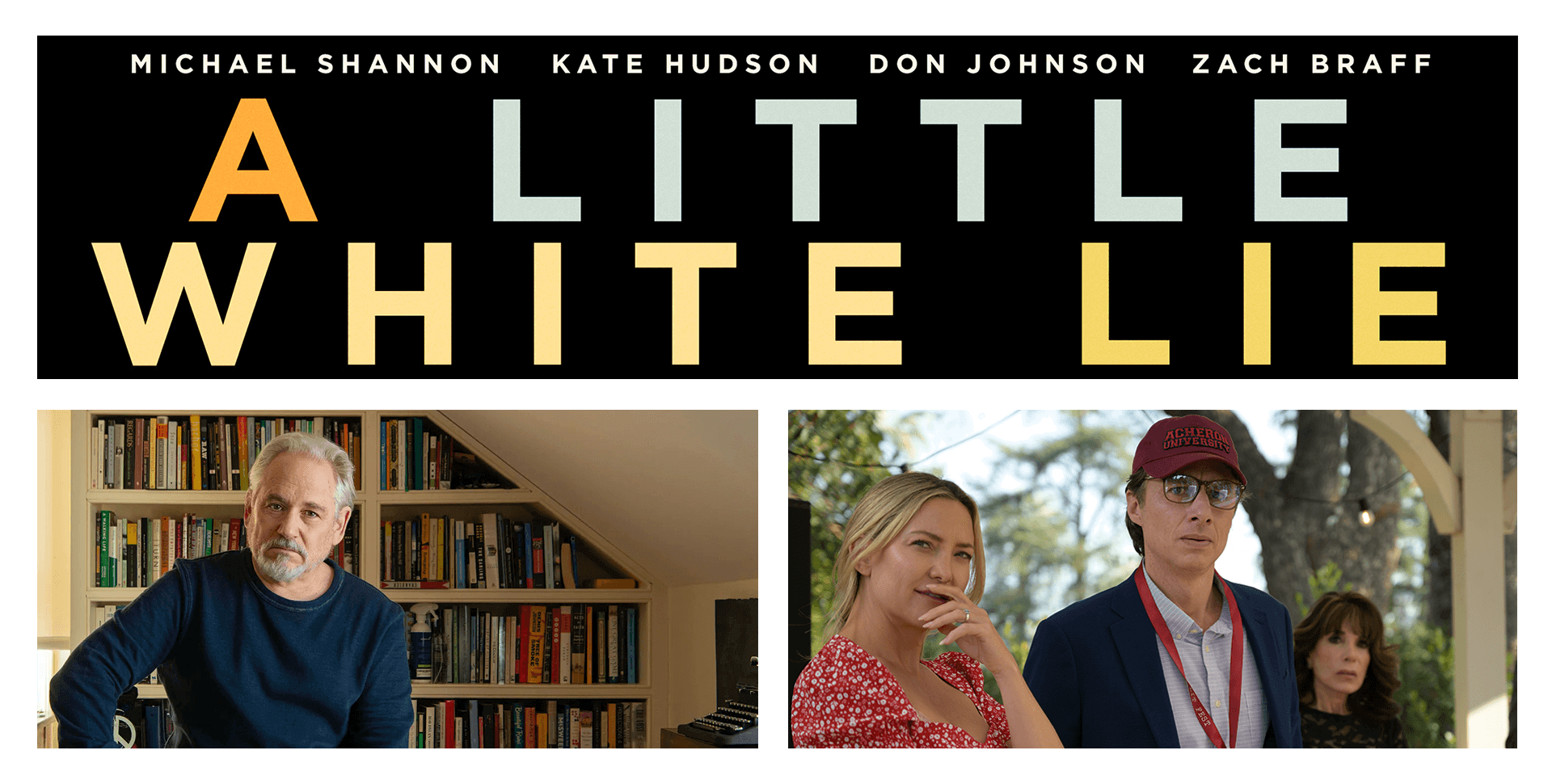The comedy feature film A Little White Lie (2023) follows a New York handyman who attends a literary festival as a famous author named Shriver. Based on Chris Belden's 2013 novel "Shriver, "the film features an all-star cast, including Michael Shannon, Kate Hudson, Don Johnson, and Zach Braff.
In this interview, we gain insight into Michael Maren's creative vision and approach to bringing this story to the big screen. A Little White Lie is now available to watch in select cinemas and on VOD.
A Little White Lie explores imposter syndrome through a mysterious storyline. Could you tell us about the screenwriting process for adapting Chris Belden's 'Shriver: A Novel' into a movie?
The novel leans far in the direction of absurdity. The characters have ridiculous names, and Shriver is beset by allergies and flying insects. On the page, it reads as high insanity. I wanted to keep the farcical feel of the book, but I thought going all the way in film would only be distracting. So I pulled back on much of that and grounded the Michael Shannon’s Shriver in a more solid reality so the film could deal more effectively with the central issues that drew me to the story.
The cast is impressive — a mix of seasoned actors and fresh faces. What was the casting process like for A Little White Lie?
Michael Shannon was always the constant in the process. We had been set to film in 2019 when I was diagnosed with cancer. It took me a year to fully recover, and we had to recast most of the roles. Kate Hudson signed on in early 2020. And then we moved the location from New Orleans to Los Angeles. Michael is a star magnet. I had long wanted Don Johnson for the role of T. Wasserman and was delighted when he agreed to sign on. I had just seen Da’Vine Joy Randolph in Dolemite is my Name and asked our casting director to see if she was available. Her character plays a pivotal role in the drama. I can’t imagine anyone but Zach Braff playing the role he was asked to play. I admire him so much as an actor and director. Jimmi Simpson was perfect for the role of the detective, and when I explained to him how I saw the role he quickly signed on. Benjamin King is a wonderful actor who was in my first film and I knew I wanted him to play the journalist. And Wendie Malick is a friend, who had long been attached to the role of the patron of the festival.
The cinematography in the film is striking. Can you talk about the decision-making process behind the film's visual style?
Thank you for saying that. This film came together very quickly and I met our DP, Edd Lukas two weeks before we started filming. There was no time to storyboard, and there were locations we only secured days before actually filming there. Edd and I met every night after wrap and worked on the shot list for the next day. I’m not a fan of intrusive look-at-me camera work. The idea was to keep it as naturalistic as possible as a counter to the general absurdity of the situation. Edd is brilliant, and the entire crew was great.
Michael Shannon is an outstanding performer. How did you approach directing the actors in this film?
Years ago Milos Forman said to me that I should cast the film and then trust the actors. I spoke to each of them before we started and discussed the characters. Each of them gave me variations with every take. I’m not going to lie; at first, it was intimidating directing all these great actors on set. I felt a bit like Shriver.
What are your favorite scenes in A Little White Lie — while you were on the set filming and in the final cut of the movie?
My favorite scene by far is the one where Michael Shannon reads a few pages from Shriver’s novel, Goat Time, to Kate Hudson’s Simone. He seduces her with literature. And the reading transforms him. To me, it is about the transformative power of art.
I also love the scene where Michael Shannon sits quietly on a bench sharing a sandwich with M. Emmett Walsh’s professor character. It is the one moment in the movie where no one wants anything from him.
Where was the movie filmed, and how long was principal photography?
We started filming in and around Los Angeles in February 2020. It was going to be a 24-day shoot. Then COVID hit, and we shut down with eight days remaining. It took 400 days to gather up the cast and restart, and we went to Redlands, California. The new location allowed us to isolate the cast and crew in hotels, and we were able to film the college scenes at the University of Redlands, which was largely deserted because the students were studying from home.

The score for A Little White Lie — can you please tell us how it came to be?
I had met composer Alex Wurman online, on Instagram I think. I loved his work on March of the Penguins, and he scored “Patriot,” a TV series I loved. The film is scored in a very traditional way, repeated themes adapted to each situation and character.
What are the films/directors that have influenced you as a filmmaker, including A Little White Lie?
I already mentioned Milos Forman. Milos was a good friend and there’s nothing I can add to the accolades he’s received. If I had to name one director in the case of this film it would be Hal Ashby, his film Being There in particular. Ashby had a strong, unobtrusive way of letting the story determine the look and tone of the film.
Favorite movies from the past decade?
Okay, I just free associated a bunch of recent films I love and half of them ended up being more than a decade old. So here are the remaining titles:
- Shoplifters
- Force Majeure
- Birdman
- Get Out
- Red Rocket
- A Ghost Story
- The Father
- A Hero
- Cold War
- Parasite
- The Handmaiden
- Dune
- Mad Max: Fury Road
- Titane
That said I’m sure I’ve neglected some wonderful films I love that should be here.
Which themes and subject matters interest you as a filmmaker?
Broadly speaking I’m interested in what might be called The Human Comedy. By that, I mean an unrelenting quest for status that drives people to completely lose who they are, to lose their basic humanity and all that is really pleasurable in this life. That is one of the themes of A Little White Lie. Beyond that, I’m working on a project set in the early American labor movement, and another concerning a journalist forced to return to the U.S. and confront his PTSD.
Watch A Little White Lie Now
